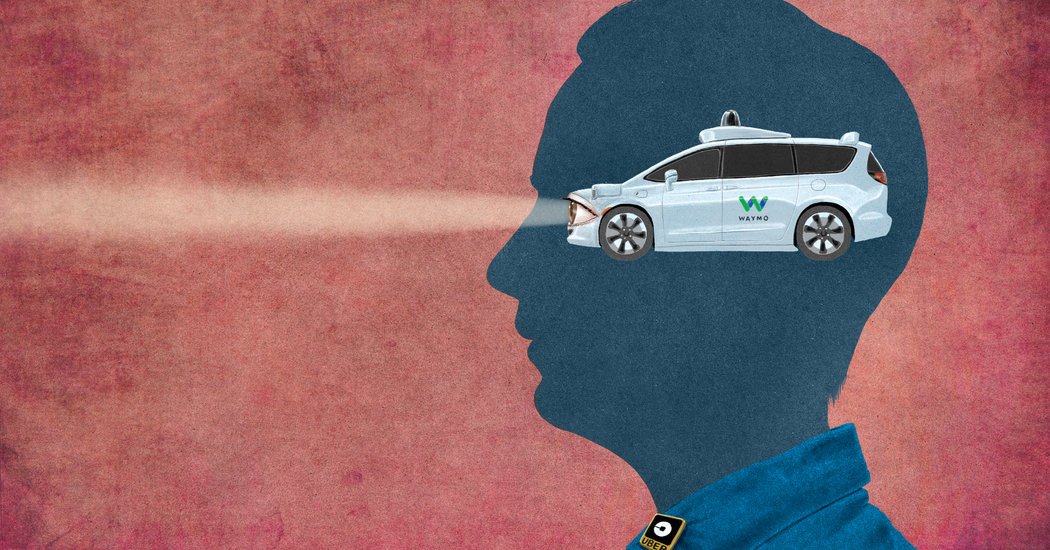“Figuring out what’s on one side of the line and what’s on other side is incredibly complicated,” she said.
What Waymo is arguing
TRADE SECRETS. Waymo has accused Uber of colluding with Anthony Levandowski — an early engineer on Google’s self-driving car team who left the company in January 2016 — to steal information about the project. Waymo’s legal argument relies on a less-traveled area of intellectual property law: trade secrets.
Unlike publicly filed patents, trade secrets are, well, secret. They are defined as valuable information that is not generally known and is protected by the company from getting out, like the recipe for Coca-Cola. But because trade secrets can be hard to define, they raise questions about the line between an employee’s skill or knowledge versus intellectual property belonging to an employer.
R&D. Waymo, which started under the Google banner before being spun off as a separate entity, spent years and more than $1 billion on research and development of driverless cars. The technology was so new when Waymo entered the field in 2009 that it had to devise everything from the ground up, including what sensors to use, how to move sensor data into software and how to test it all.
It was a long and tedious process requiring much experimentation to see what worked and what didn’t. Some of those lessons are still considered valuable and closely guarded secrets at Waymo — secrets the company says Uber would have to tap into to meet the ambitious financial targets it has set for Mr. Levandowski.
LIDAR. Waymo has said Uber misappropriated eight of its trade secrets, most of them having to do with lidar — an abbreviation for “light detection and ranging” — devices that measure distances using lasers. Such sensors are critical in the operation of autonomous vehicles. One of the eight secrets was a so-called “negative trade secret” — a term for a valuable lesson about what does and doesn’t work that was learned through time-consuming trial and error.
What Uber is arguing
TRADE SECRETS. Uber says that what Waymo claims are trade secrets actually aren’t. Uber is expected to argue it developed all of its autonomous vehicle technology and know-how independently and that the information Waymo claims are trade secrets are generally known or ascertainable by Uber’s own experts.
It is a position that is fitting with the start-up spirit of Silicon Valley, where engineers move freely from company to company, taking what they know with them. A free flow of ideas and personnel can open the door to claims of theft or copying, but technologists often look down on companies that resort to legal action to kneecap a competitor.
CHANGING JOBS. In a pretrial proceeding with lawyers for Uber and Waymo, Judge William Alsup, who will preside over the trial in federal court, pressed them on how to protect the rights of engineers to advance their careers elsewhere if their former employers designate “everything in the universe” as a trade secret. He cited a hypothetical example of an engineer who learned the best way of doing something through trial and error.
When that engineer moves to another company and is assigned that same task, will that person need to “reinvent the wheel” and go through all the experiments again to make sure they are not using a former employer’s trade secrets? “Is an engineer really supposed to get a frontal lobotomy before they go to the next job? I think the answer has to be no,” Judge Alsup said.
KEEPING SECRETS. Uber’s lawyers are expected to argue that even if the knowledge amounted to trade secrets, it was not misappropriated, because — among other reasons — Waymo didn’t do enough to keep its secrets secret. Besides, Uber can point out that it didn’t benefit from any potential trade secrets because autonomous vehicles are still in development.
Uber will do its best to distance itself from Mr. Levandowski, who was in charge of the ride-hailing company’s autonomous vehicle team when he was fired in May 2017 for refusing to cooperate with its legal defense. Uber has said it repeatedly told Mr. Levandowski not to bring along any Google intellectual property after it bought Ottomotto, the company he started after leaving Google. Uber insists any computer files that Mr. Levandowski may have possessed from his time at Google never reached its computer servers.
Anthony Levandowski: A bender of rules?
For all the philosophical arguments about trade secrets and the role they may play in Silicon Valley’s labor mobility, this case might boil down to the actions of Mr. Levandowski. His willingness to bend the rules seems extreme even by Silicon Valley’s standards.
Waymo claims — and Uber does not dispute – that Mr. Levandowski downloaded 14,000 files before leaving Google and receiving a $120 million bonus from his former employer. At the time, he was already meeting regularly with Uber and Travis Kalanick, the company’s then-chief executive, and had not officially founded his own firm, Ottomotto. Mr. Levandowski is not a defendant in the suit.
In a deposition in July, Larry Page, chief executive of Alphabet, the parent company of Google and Waymo, was asked about the decision to pay Mr. Levandowski a massive bonus. Mr. Page acknowledged that Mr. Levandowski had played “a significant role” in the history of the project, but was a headache for management by the time he left.
When Uber announced the acquisition of Ottomotto for a reported $680 million, Mr. Levandowski had already been consulting with Uber for months. Even during his nine-month stint with the ride-hailing company, Mr. Levandowski demonstrated a willingness to push the envelope when he defied state regulators and forged ahead with autonomous vehicle testing on the streets of San Francisco.
When called to testify, Mr. Levandowski is expected to exercise his Fifth Amendment right to avoid self-incrimination. He hasn’t cooperated with Uber’s lawyers, and Judge Alsup has referred Mr. Levandowski to the federal prosecutors for possible theft of trade secrets. While it’s not clear whether the Department of Justice is investigating his actions, federal investigators confirmed that it was looking into Uber’s business practices.
After he was fired, Mr. Levandowski announced that he would start a religion worshiping a Godhead based on artificial intelligence.
“Let’s stop pretending we can hold back the development of intelligence when there are clear massive short term economic benefits to those who develop it and instead understand the future and have it treat us like a beloved elder who created it,” reads the passage on the website for “Way of the Future,” the religion founded by Mr. Levandowski.
By DAISUKE WAKABAYASHI
https://www.nytimes.com/2018/01/30/technology/waymo-uber-lawsuit.html
Source link


